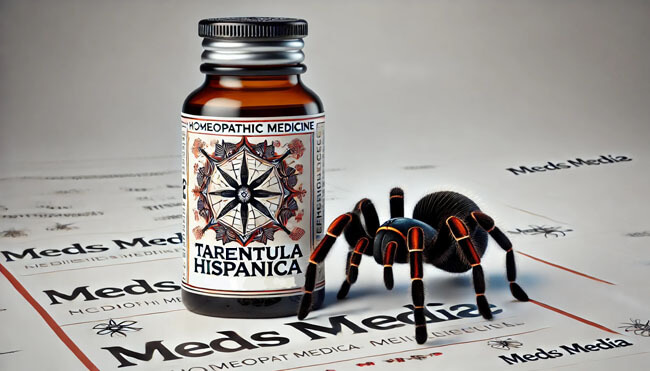
Spongia Tosta, a homeopathic remedy prepared from roasted sea sponge, is especially indicated for ailments related to the respiratory and cardiovascular systems. In homeopathy, remedies are also prescribed based on the patient’s overall personality profile, including mental, emotional, and physical characteristics. The Spongia Tosta personality is marked by distinct patterns that reflect the essence of this remedy’s action on the mind and body.
Mental and Emotional Characteristics:
The Spongia Tosta personality is dominated by a sense of anxiety and fear, particularly regarding one’s health. These individuals often experience panic attacks and feel as if something catastrophic is about to happen, especially related to their respiratory or heart symptoms.
- Fear of suffocation is a prominent emotional trait, which often corresponds with physical symptoms like shortness of breath or asthmatic conditions. This fear becomes heightened at night, particularly after midnight, when the individual may awaken with a feeling of impending suffocation or dread.
- They tend to be easily excited or agitated, and this excitement can trigger or worsen their symptoms, particularly the cough.
- The Spongia Tosta individual is often overwhelmed by a sense of dread and nervousness, which can escalate into a state of near panic, especially if they feel their breathing is obstructed or their heart is racing.
These emotional traits reflect a deep-seated sense of vulnerability, where the patient is extremely sensitive to changes in their condition or environment, fearing that their life is in danger.
Physical Characteristics:
Physically, the Spongia Tosta personality is characterized by symptoms that heavily affect the respiratory and cardiovascular systems:
- Respiratory issues are at the core of this remedy’s action. The patient typically suffers from a dry, barking, or croup-like cough, which worsens during inspiration and is often more severe before midnight. The sensation of dryness in the throat and air passages, with a feeling of constriction, is also common.
- They may also complain of a burning sensation in the larynx, which can make speaking or breathing difficult.
- Swollen glands, particularly in the neck (cervical glands) and thyroid, are frequently observed. These swellings may be accompanied by pain and tenderness, especially when the person turns their head or touches the area.
- The Spongia Tosta personality also shows signs of cardiac distress, such as rapid, violent palpitations and feelings of suffocation, especially when lying down. This can lead to the individual sleeping in a sitting position or with their head elevated to relieve the symptoms.
Behavioral Patterns:
Behaviorally, Spongia Tosta individuals exhibit a tendency to constantly clear their throat, as they feel a persistent tickling or irritation in the larynx. This becomes a subconscious action, almost like a reflex, particularly when they are anxious or nervous.
- They also display a certain degree of restlessness and nervous energy, often pacing or moving about to alleviate their symptoms or distract themselves from their fears.
- Their sensitivity to cold air is notable, as exposure to cold or wind can trigger their respiratory symptoms, causing an increase in cough or breathing difficulties.
- Fatigue is a common theme in their behavior, as they often feel exhausted after even minor exertion. This exhaustion is both mental and physical, often leading to feelings of heaviness and a desire to lie down, though lying flat may exacerbate their respiratory complaints.
Associated Diseases:
The Spongia Tosta personality is closely linked to a variety of respiratory and cardiovascular diseases, as well as glandular conditions. Some of the key associated conditions include:
- Croup: A characteristic dry, barking cough that worsens before midnight.
- Asthma: Especially cases where the patient feels suffocation or a tightness in the chest, with symptoms worsening at night.
- Laryngitis and Laryngeal Phthisis: Marked by hoarseness and a burning sensation in the throat, making the voice weak.
- Goiter and Thyroid Swelling: Spongia Tosta is known for treating cases of enlarged thyroid or goiter, especially when associated with breathing difficulties.
- Valvular Insufficiency and Hypertrophy of the Heart: The remedy is indicated for those with heart issues, including palpitations, shortness of breath, and symptoms of angina pectoris.
- Bronchial Catarrh: Accompanied by wheezing, asthmatic cough, and profuse expectoration, often worse in cold air or hot rooms.
Miasmatic Personality of Spongia Tosta:
In homeopathic theory, a miasm refers to a deep-rooted, inherited predisposition to certain diseases. The Spongia Tosta personality is closely related to the tubercular miasm. This miasm is characterized by chronic, deep-seated respiratory issues, glandular swellings, and a general weakness or debility that affects the body’s vitality.
Patients with a tubercular miasm often have a lax fiber, meaning their tissues and muscles are weak and prone to exhaustion. They may also have a fair complexion and a tendency toward glandular swellings, as seen in the Spongia Tosta personality.
Conclusion:
The Spongia Tosta personality is defined by a combination of intense mental and physical symptoms, particularly in the respiratory and cardiovascular systems. The patient experiences deep anxiety, particularly at night, when they may fear suffocation or suffer from heart palpitations. Physically, they are plagued by dryness, constriction, and swelling in the throat, glands, and air passages, along with a characteristic dry, barking cough. Understanding the Spongia Tosta profile is essential for practitioners, as it allows for holistic treatment of both the emotional and physical manifestations of illness in alignment with homeopathic principles.
SPONGIA TOSTA: HOMEOPATHIC MATERIA MEDICA
Why Meds Media guides are different
We focus on clear, practical explanations of homeopathic and natural health topics so you can understand remedies, symptoms, and lifestyle changes in simple language.
Meds Media is an educational resource only. Always consult a qualified doctor or homeopathic practitioner before starting, stopping, or changing any treatment.
Similar Posts You may also like
Zincum Picricum Homeopathic Medicine & Personality | Uses, Benefits & Indications
Zincum Phosphoricum Homeopathic Medicine & Personality | Uses, Benefits & Indications
Zincum Iodatum Homeopathic Medicine & Personality | Uses, Benefits & Indications
Zincum Bromatum Homeopathic Medicine & Personality | Uses, Benefits & Indications
Zea Homeopathic Medicine & Personality | Uses, Benefits & Indications
Zincum Aceticum Homeopathic Medicine & Personality | Uses, Benefits & Indications
Zincum Cyanatum Homeopathic Medicine & Personality | Uses, Benefits & Indications
Zincum Muriaticum Homeopathic Medicine & Personality | Uses, Benefits & Indications
Zincum Oxydatum Homeopathic Medicine & Personality | Uses, Benefits & Indications
Zincum Sulphuricum Homeopathic Medicine & Personality | Uses, Benefits & Indications

Phosphorus Homeopathic Medicine & Personality | Uses, Benefits & Indications
Causticum Homeopathic Medicine & Personality | Uses, Benefits & Indications

Veratrum Viride Homeopathic Medicine & Personality | Uses, Benefits & Indications

Zingiber Officinale Homeopathic Medicine & Personality | Uses, Benefits & Indications

Sulphur Homeopathic Medicine & Personality | Uses, Benefits & Indications

Tarentula Hispanica Homeopathic Medicine & Personality | Uses, Benefits & Indications

Gelsemium Homeopathic Medicine & Personality | Uses, Benefits & Indications


